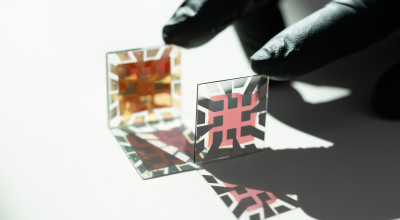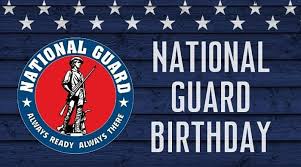
Every Dec.13, we celebrate the National Guard's Birthday, reflecting on its storied past, which dates back to its founding in 1636. This day marks the formal establishment of the militia in Massachusetts, setting the stage for a defense tradition that has actively participated in every major American conflict since. It's a day to honor the resilience and versatility of the Guard and its members who seamlessly juggle their military obligations with civilian careers, contributing to both areas.
1LT Keegan George, a Research Engineer at the Georgia Tech Research Institute (GTRI) and an Officer in the Georgia Army National Guard (GAARNG), exemplifies this dual commitment. His career is a testament to the synergy between military service and civilian expertise, demonstrating how skills from one arena can amplify success in the other.
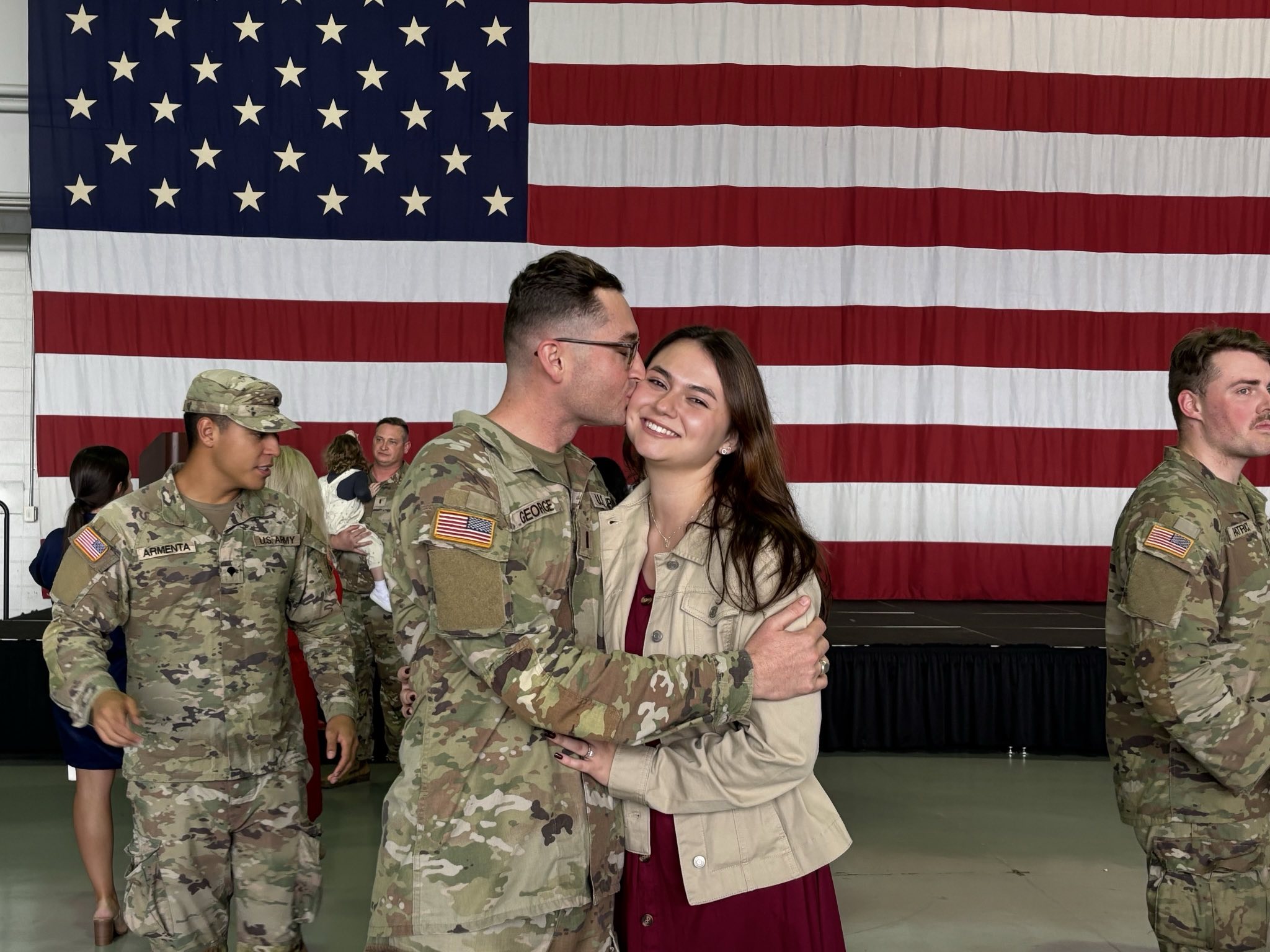
At GTRI
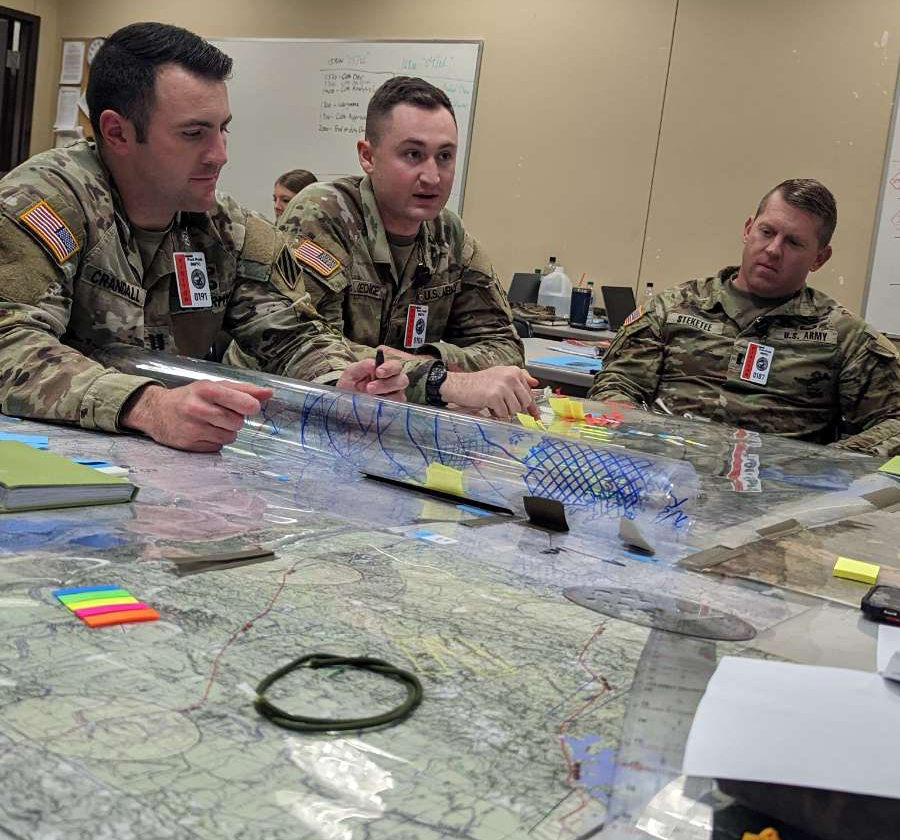
At GTRI, George is a Flight Test Engineer involved in high-stakes projects within the ATAS Laboratory, focusing on the development, integration, testing, and evaluation of tactical military systems. These systems are vital for the protection of personnel and critical infrastructure around the globe. His military background in intelligence and security significantly enriches his approach to these projects, bringing a unique perspective that enhances the institute's objectives.
His work includes supporting flight test planning, execution, and reporting for unmanned aerial systems (UAS) and counter-UAS technologies. These tasks require meticulous attention to detail and robust analytical skills—qualities helped by his military training.
In the Georgia Army National Guard
George serves as an Intelligence Officer (Battalion S2), a role crucial for the success of military operations, In the GAARNG, he oversees the 48th Infantry Brigade Combat Team's personnel security, counterintelligence, intelligence support, and open-source intelligence programs. The skills required for this position—rapid decision-making, strategic planning, and a deep understanding of tactical operations—directly apply to his civilian duties at GTRI.
Education and Professional Development
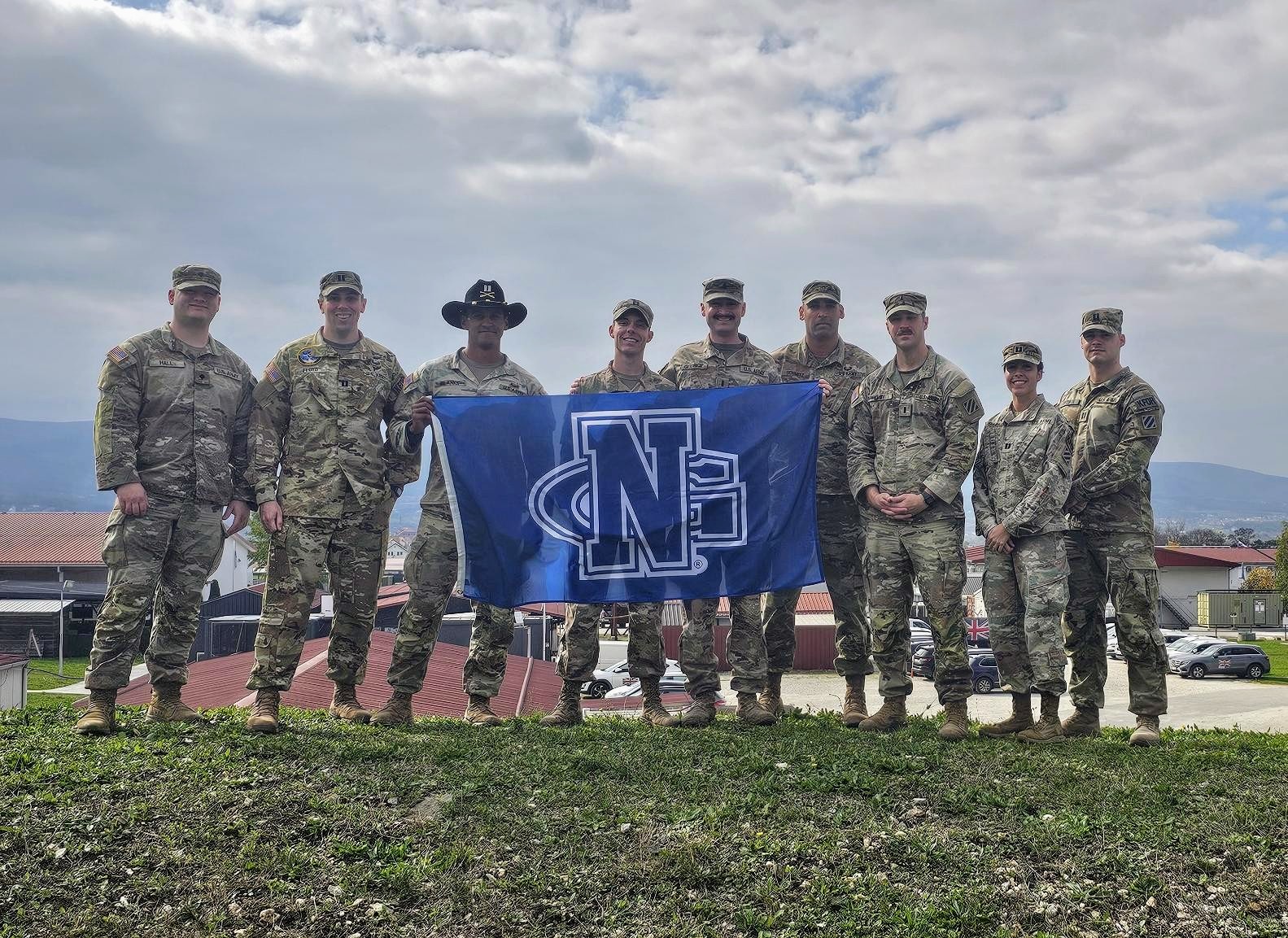
George's educational achievements further link his military and civilian roles. He recently completed a Master of Science in Cybersecurity from Kennesaw State University, achieving Summa Cum Laude honors while deployed overseas in Kosovo. This degree not only advances his career but also deepens his understanding of the cybersecurity challenges faced by both the military and private sector entities.
The Military/Civilian 'Balancing Act'
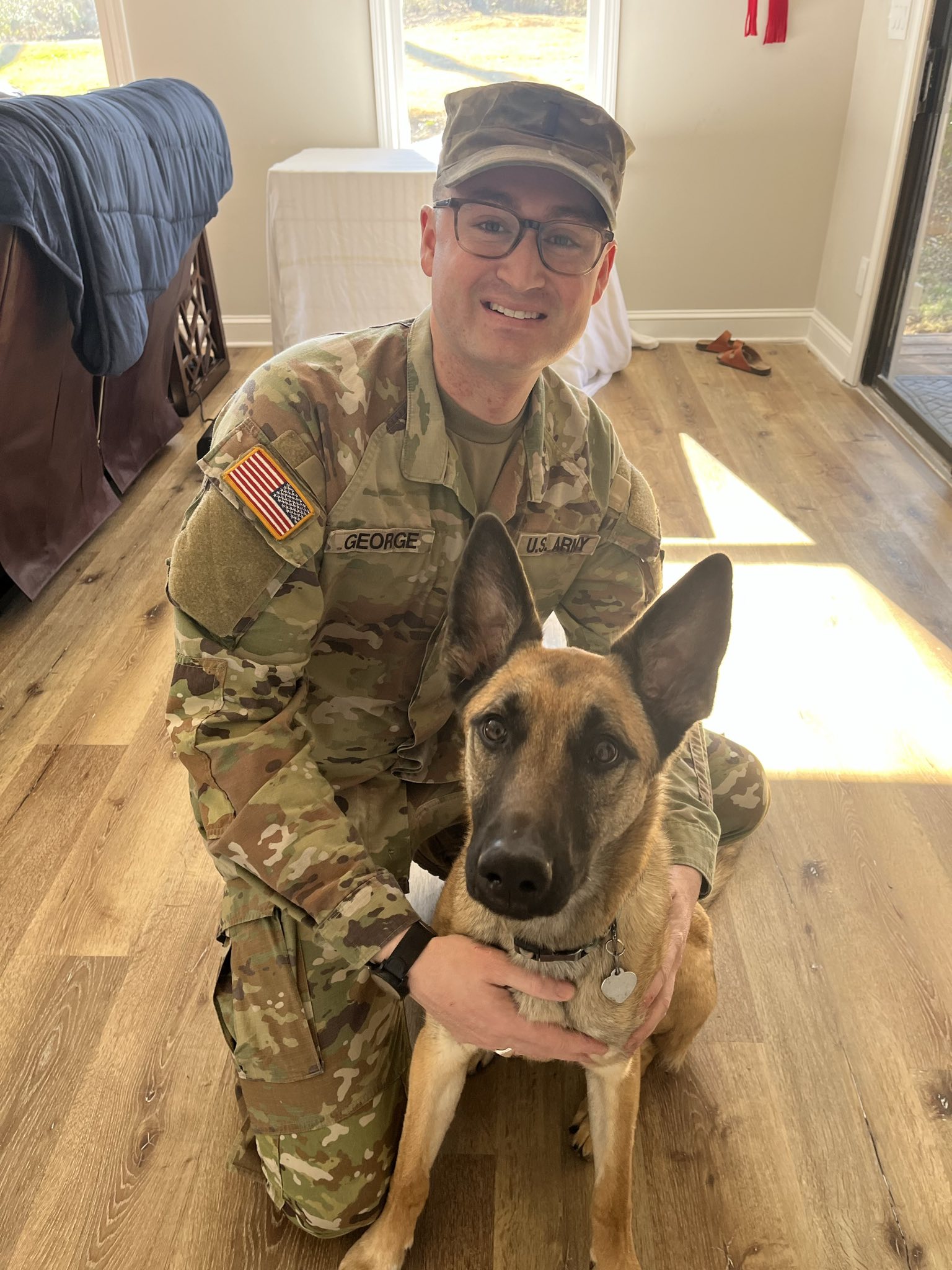
Balancing a demanding job at GTRI with his duties in the National Guard is no small feat. George's ability to manage these roles effectively is rooted in his disciplined approach to time management and his commitment to continuous learning and improvement. His experience demonstrates the potential for professional growth when one navigates multiple responsibilities simultaneously.
George's story is particularly resonant as we celebrate the National Guard's Birthday, highlighting the critical role Guardsmen play in both national defense and community support. This dual service model not only enhances individual careers but also strengthens the institutions and communities these servicemen and women are part of.
Q&A With 1LT Keegan George
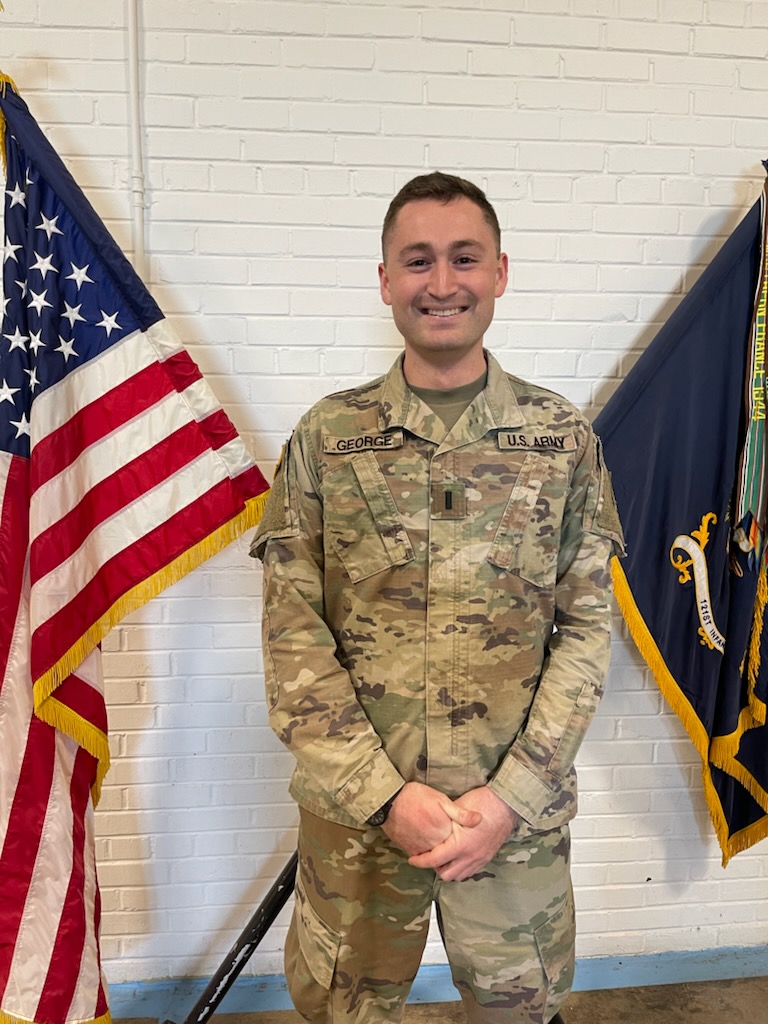
Keegan shared insights into the specific strategies he employs to excel in both of his roles, the challenges he faces, and his advice for others looking to serve in both civilian and military capacities. His reflections will offer a deeper understanding of the symbiotic relationship between his two worlds and underscore the broader implications of his work.
Q: What initially drew you to your roles at GTRI and the Georgia Army National Guard?
I initially joined the Georgia Army National Guard (GAARNG) when I was 17, with a waiver from my parents, first thing out of high school, to attend the University of North Georgia (UNG) in Dahlonega. I wanted to stay in-state for the tuition but wanted to get as far from my parents to "fly the coop" and get up into the mountains for adventure.
I enlisted as a combat engineer. Initially, I was drawn to the Guard for the education benefits so I could start calling myself an "engineer." However, I stayed for my enjoyment of serving my country and for my pride in my home state.
I was initially drawn to GTRI as a recommendation from my graduate professor. The professor had gotten to know me and recommended that I apply to GTRI as a student worker. I had heard of Georgia Tech before, but not GTRI. At the time, I was working at the Georgia Bureau of Investigation (GBI) as a Database Administrator in the Forensics Department while still juggling being in the Guard for drill and going to grad school.
I came onto GTRI as a Graduate Research Assistant (GRA) in the Information and Communications Lab (ICL), leveraging my knowledge to assist the GA Department of Public Health with Fast Healthcare Interoperability Resources (FHIR). Again, this excited me: I was working with a Georgia organization, on a Georgia project. I was hooked. I loved the organization at GTRI, the benefits, and the projects, but I wanted to do something different that might align with my military skills and knowledge.
Lo, and behold! GTRI has that too, and I was able to interview with a group that had the best fit for my skills and interests. I was still drawn to the title of engineer, and continuing my service to Georgia. But I stayed for my pride, as I feel I'm contributing to the warfighters in a job capacity that is always new and exciting with every challenge that lies ahead.
Q: Balancing your work GTRI with your commitments in the National Guard must require a great deal of discipline and time management. Could you share the strategies or personal qualities you lean on to manage these responsibilities effectively?
 It does! Especially when I transitioned from enlisted combat engineer to military intel officer, my duties and responsibilities changed significantly. I used to just show up to drill, now I have to plan the drill. To plan the drills, we have to collectively collaborate and meet outside of work hours because everyone is working and can't deconflict otherwise. This is the other balancing act: everyone's time is precious., especially in a part-time organization. We're adults working a full-time job elsewhere, and volunteering to be in the Guard/Reserves is splitting our time. So, it's important to make the Guard as small of a burden or strain on people when they are not wearing the uniform. To the question, that's the most important skill I learned, to communicate with fewer words to effectively not waste anyone's time with hopes to get more done.
It does! Especially when I transitioned from enlisted combat engineer to military intel officer, my duties and responsibilities changed significantly. I used to just show up to drill, now I have to plan the drill. To plan the drills, we have to collectively collaborate and meet outside of work hours because everyone is working and can't deconflict otherwise. This is the other balancing act: everyone's time is precious., especially in a part-time organization. We're adults working a full-time job elsewhere, and volunteering to be in the Guard/Reserves is splitting our time. So, it's important to make the Guard as small of a burden or strain on people when they are not wearing the uniform. To the question, that's the most important skill I learned, to communicate with fewer words to effectively not waste anyone's time with hopes to get more done.
Typically, the unit sends out the drill schedule for the whole year, giving everyone plenty of time to plan around those dates to muster for drill. My secret is I keep all the dates for drills in my phone calendar and on my work calendar that is shared with my work team. So, I always know when I have a drill and can't make that weekend date, and my work knows when I will be out, or more tired coming back, from a drill weekend. Thankfully, I have been juggling being a Guardsman with civilian employment my whole adult life. But GTRI, as a civilian employer, has been the best at allowing me to balance this. Due to the extensive benefits GTRI offers, such as 18 days of paid military leave to use when drills or annual training occur during work days. Along with the military differential pay they offer to match the difference of your salary while serving on military duties when the 18 days have been exhausted.
Q: Can you discuss a specific instance where your military training directly impacted your approach to a project or challenge at GTRI?
Sponsor engagement is important at GTRI, and although I haven't been in the organization terribly long to be called masterful at it, I feel like the military training has given me a leg up. I know I can relate to sponsors more easily, especially when it comes to understanding the lingo. The military has an endless list of acronyms used in speech. Nobody knows what they stand for, but when you say the acronym, we all have a common understanding of what item you're referring to and that's all that matters, putting us all on the same page. To the point that its become an ACH (army combat helmet) instead of just calling it a helmet. When speaking to others at GTRI, with all the "whiz-bang" niche technologies, and they use an acronym that I don't know, my engineer brain screams to learn what it stands for. My military brain calmly says to simply look it up later if it's important enough. Otherwise, just roll with it and keep calling it an ACH.
Q: How much "crossover" is between your MOS and duties in the Guard and your civilian work as a Research Engineer?
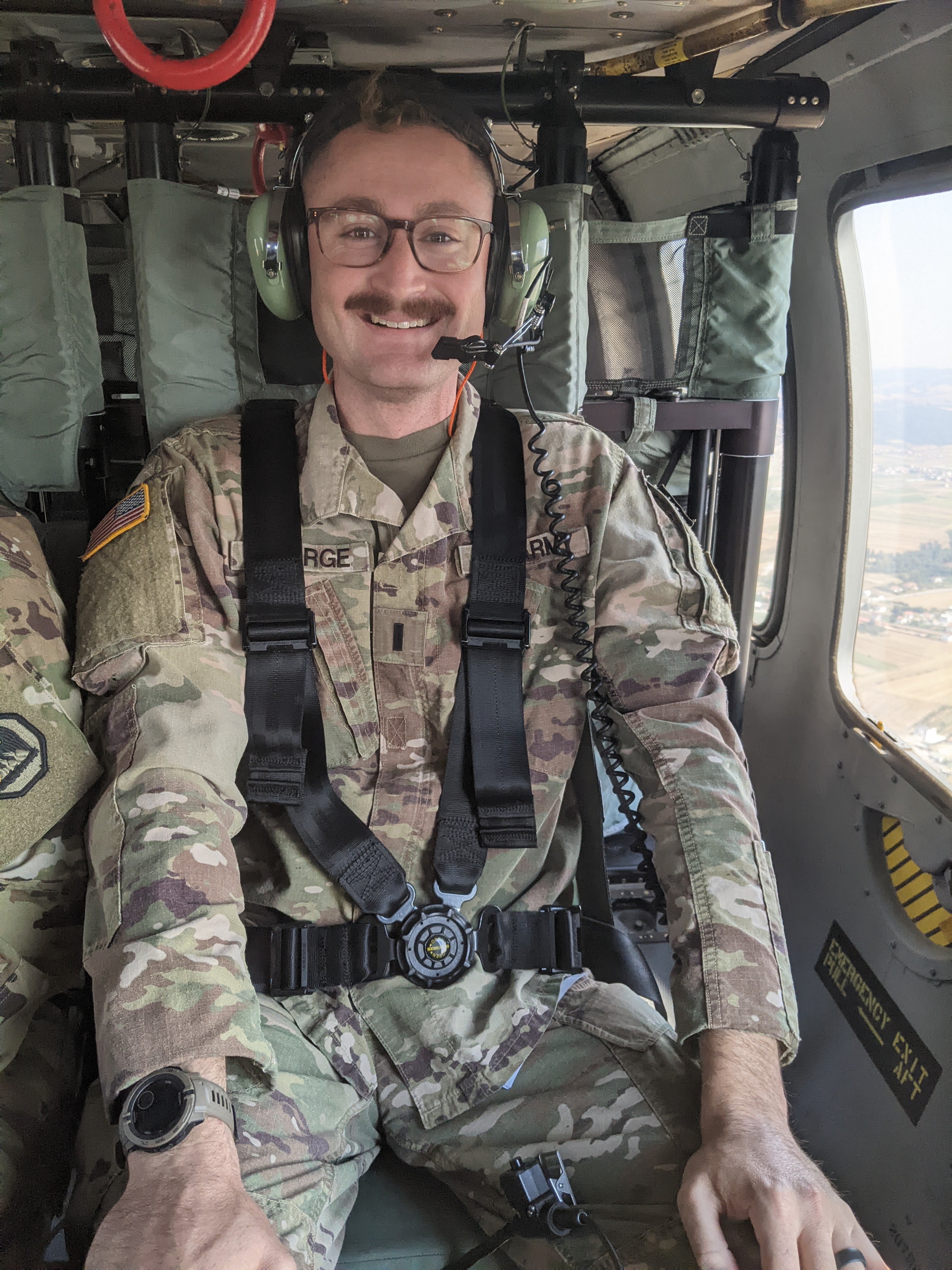 Oh, there's a lot, and I love it. At GTRI-ATAS, I serve as a flight test engineer on a team specializing in Force Protection that focuses on UAS/UAV and counter-UAS/UAVs. Force protection is about protecting service members from threats. As an engineer here, I must understand UAS threats and capabilities to develop further and improve protection for warfighters.
Oh, there's a lot, and I love it. At GTRI-ATAS, I serve as a flight test engineer on a team specializing in Force Protection that focuses on UAS/UAV and counter-UAS/UAVs. Force protection is about protecting service members from threats. As an engineer here, I must understand UAS threats and capabilities to develop further and improve protection for warfighters.
In the Ga. Army Guard, I serve as a Military Intelligence Officer. As the S2 Intelligence guy, I must wear a "red hat," which means understanding enemy threats and capabilities, exploiting opportunities and vulnerabilities, and protecting the friendly "blue hats." To be good at intel, you need to be a walking encyclopedia. Being a research engineer is no different. Both jobs require an overall understanding of the desired end state and a technical plan to achieve it, whether for a commander or a customer. The "crossover" is the protection and enablement of U.S. service members--which I feel strongly about as I am still one myself. I get to continue supporting the "green suits'" fight even when I don't have my green suit on.
There are a lot of similarities when it comes to both jobs. Both military and civilian jobs put a problem set in front of you, with an end state to achieve. In both capacities, you learn soft skills for working with people. The divergence is that deployments are like serving prison time, but you get paid. Coming onto different projects at GTRI is quite the opposite of that because you typically can choose your project work. The convergence: both throw you into a work environment with a problem set, and you have to figure out how to work with each other or fail terribly at achieving the end-state.
Q: Reflecting on your educational and professional journey, how has completing your Master's in Cybersecurity while deployed influenced your work in both your military and civilian roles?
Cybersecurity is always a red-hot topic, which again requires one to wear a red hat. You learn about Risk Management Framework on the management side and the technical side of exploitation opportunities and vectors of vulnerabilities. I hear about this topic everywhere I go, and it comes up a lot in both of my jobs. So, I started the degree knowing that it was applicable everywhere.
I started on my Master's degree before the deployment, knowing I needed an advanced degree to be competitive in my military and civilian careers. It was convenient, it made sense, so I did it. It was an engineering and scheduling feat in and of itself that I was able to complete the degree while overseas, and I am especially appreciative to my overseas chain of command for their support in allowing me to make it a reality. Of course, it was not easy completing the capstone with other students while six hours ahead of Eastern Time. I had many group project meetings at midnight my time.
Q: As the National Guard celebrates another year of service, what do you think is/are essential aspect(s) of serving in the National Guard that civilians might not be aware of?
Our nation's military--active duty, Guard, and Reserves--is an all-volunteer force. The United States National Guard's birthday is Dec. 13, and in 2024, it will be celebrating its 388th birthday. The National Guard is the oldest military force in the Department of Defense.
There are hundreds of National Guard armories throughout every U.S. state. (Georgia has close to 80 armories and regional facilities alone). There are many "citizen soldiers" living or working right next to you. Please give them a special thanks on this day. Most recently, the Guard has been most often activated during declared "states of emergency." Many of your neighboring citizen soldiers were called to assist after Hurricane Helene hit the East Coast. Many were in southern Georgia with chainsaws clearing roads, or in western North Carolina. There, a helicopter evacuated my grandmother, who was trapped while sheltering in place.
As we honor the National Guard on its birthday, let us recognize the contributions of individuals like 1LT Keegan George, who lead lives of service. Their stories inspire a greater appreciation for the delicate balance of serving both the nation and the community.
Writer: Christopher Weems
GTRI Communications
Georgia Tech Research Institute
Atlanta, Georgia
The Georgia Tech Research Institute (GTRI) is the nonprofit, applied research division of the Georgia Institute of Technology (Georgia Tech). Founded in 1934 as the Engineering Experiment Station, GTRI has grown to more than 2,900 employees, supporting eight laboratories in over 20 locations around the country and performing more than $940 million of problem-solving research annually for government and industry. GTRI's renowned researchers combine science, engineering, economics, policy, and technical expertise to solve complex problems for the U.S. federal government, state, and industry.



